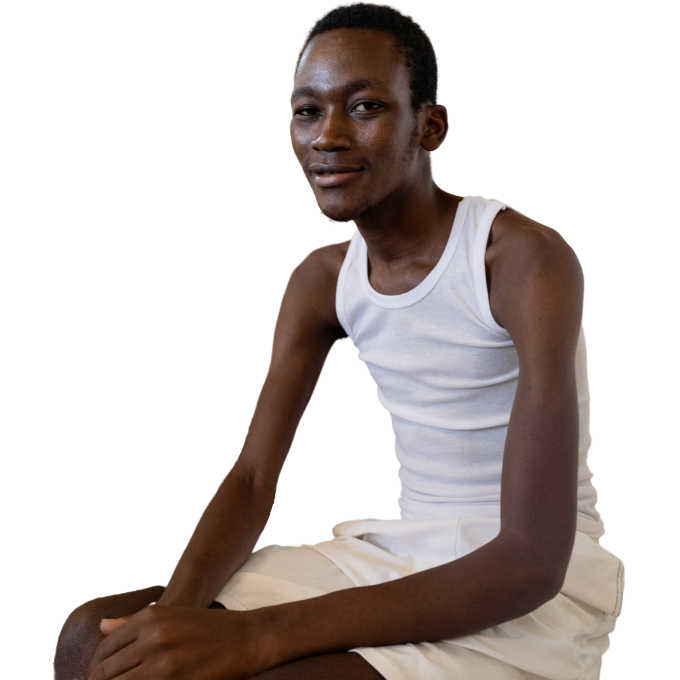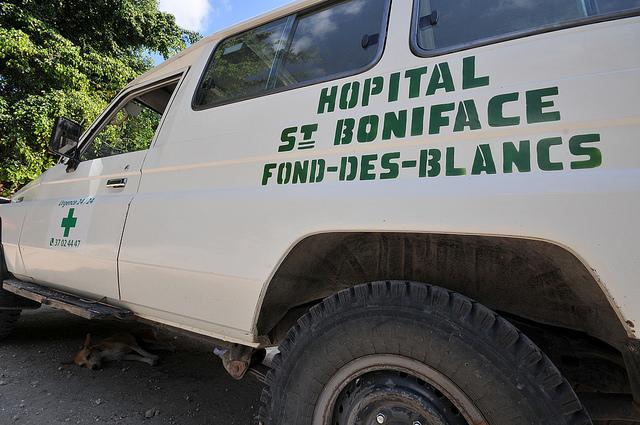“This is the first hospital I’ve been to that has welcomed me like this.”
Your support will help patients like Enoc access dignified care for tuberculosis and other infectious diseases.


Sarah (name changed to protect her privacy) first learned her HIV status in 2008 when she came to SBH while pregnant with her fourth child. As part of our regular HIV testing protocol for all pregnant women, Sarah learned she was HIV positive. We had only begun providing patients with antiretroviral medications four years earlier when PEPFAR first made it possible for patients in rural southern Haiti to receive this lifesaving treatment. Sarah has been enrolled in the HIV/AIDS treatment program at SBH ever since. This July her son turned 9, and he has been healthy and free of HIV his entire life thanks to his mother’s treatment during pregnancy and her ability to deliver him via C-section at SBH to reduce the chances of mother to child transmission.
Sarah has been committed to her HIV/AIDS treatment program, participating in the monthly support groups and coming to the hospital regularly to pick up her medication. “When we met this morning, did you see me as an infected person?” she asks, “No, you see, you would not know because I always take my medication. I do not always want to take it, but my supporter (her HIV Treatment Facilitator) explains it to me and I trust him. All I need to share about my condition, I tell him. We need someone to trust, and who we can be comfortable to share our concerns with.”
This role of confidant and partner in treatment is a key piece of the HIV/AIDS program’s success. Each participant has a staff person dedicated to making sure they stay on their treatment protocol, and who the participant can go to with questions or concerns. Since the stigma towards HIV/AIDS is still very high in Haiti, many people living with HIV/AIDS do not tell even their closest family and friends about their diagnosis. Sarah explains, “The day I was told I had HIV, my sister was with me at the hospital. I did not tell her then, and she still doesn’t know. No one at home knows. When I come to the hospital (for medications or support group meetings) I tell people I am coming for my children. I take responsibility for my condition without letting anyone know.”
The pressure of stigma and secrecy makes living with HIV/AIDS even harder and makes the community of participants in the HIV/AIDS treatment program even stronger. “Only the participants in our support group know (my HIV status),” explains Sarah, “We are all infected, and we support each other and also keep confidentiality among our group. The confidentiality of what is said in the support group, and who is a member, is very strong. We are family.”
Sarah is thankful for the community of peers she has within the HIV/AIDS treatment program, and for the program’s lifesaving and life-sustaining support. “Without the HIV program at St. Boniface, my life would be very dangerous. Because of it, I am well. St. Boniface helps all of us in the program very much, in every way.”
Your support will help patients like Enoc access dignified care for tuberculosis and other infectious diseases.
